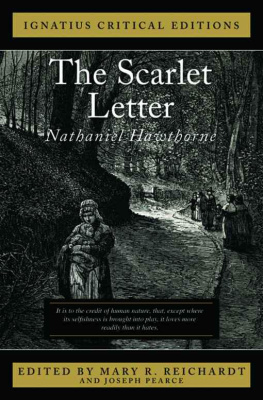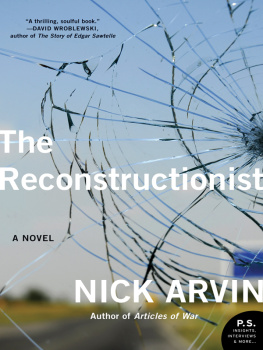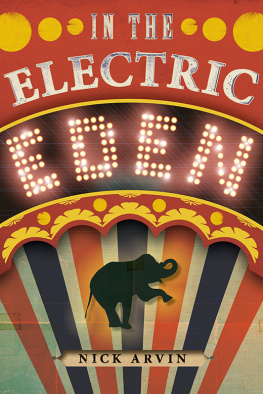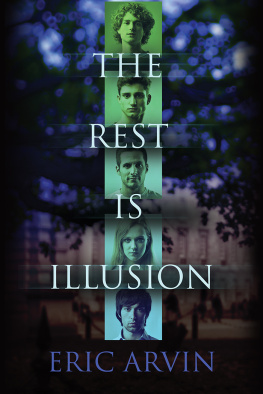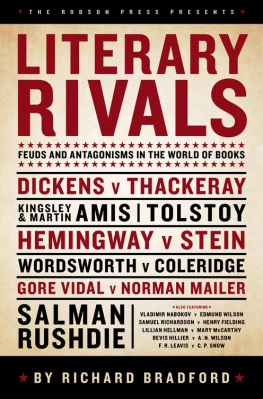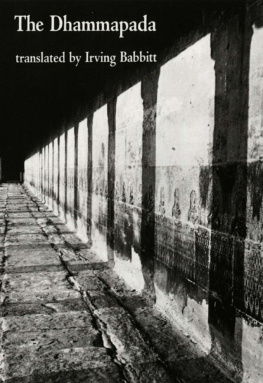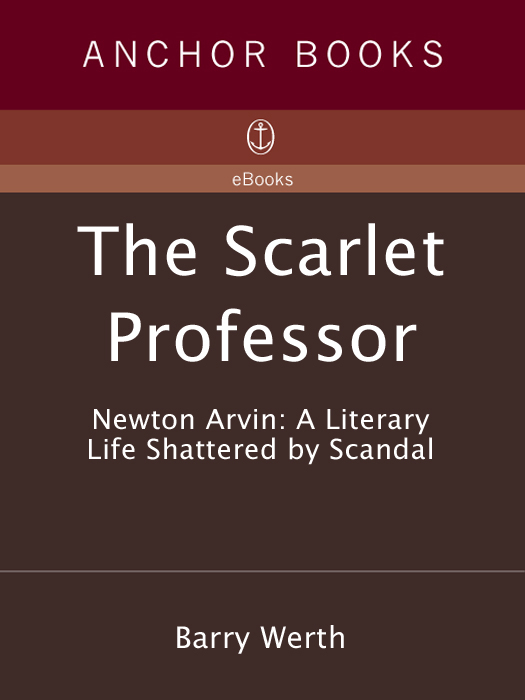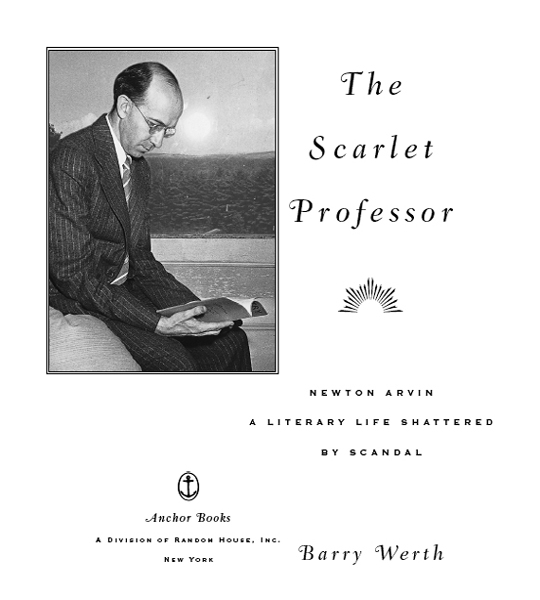A CCLAIM FOR B ARRY W ERTHS
The Scarlet Professor
Winner of the Lambda
Literary Award for Biography
Absorbing. Werth tells his story with dramatic flair, and hes especially good at fleshing out the political and cultural background of Arvins drama. A well-written, engaging book.
The Boston Globe
Lively, well-researched. Werth takes the reader rather deep inside Arvins shell. In the history of sex and intellectual life in America, Arvins is a fascinating chapter.
The New York Times Book Review
Perceptive. A human story. Werth has told this gifted but unhappy mans story with sympathy but utterly without sentimentality or special pleading. His research is thorough and surprising. Werth writes about Arvins sexual torments with refreshing and instructive dispassion, and eschews any temptation to turn Arvins story into gay-rights propaganda.
The Washington Post Book World
Heartrending. Harrowing. [The Scarlet Professor] freshens our memory of yesterdays superstition and casts valuable if veiled light on todays evasions. At the climax terror is palpable.
The New York Review of Books
Barry Werth has brought to vivid life a crucial episode in the history of American repression that is little known. The Smith College Homosexual Scandal of 1960, centrally involving the famed literary critic Newton Arvin, has never before been researched and reported in such fascinating, horrifying detail. Barry Werth has a marvelous narrative gift, and he tells his tale with spellbinding skill.
Martin Duberman
Compelling. A penetrating and compassionate look at one of the more prominent victims of [a] hidebound, old-fashioned, and darkly repressive era.
Brills Content
Werth vividly chronicles how Arvin, a mentor of Carson McCullers and Truman Capotes one-time lover, was nearly destroyed in the now-forgotten Smith College Homosexual Scandal of 1960. He also shines a light on one of the darker chapters in Americas history of intolerance.
The Providence Sunday Journal
Superb. The Scarlet Professor may help restore the personal reputation of this flawed, fascinating and largely forgotten man.
Courier-Post (Cherry Hill, New Jersey)
Insightful, compassionate. Expansive and fascinating. The greatest epilogue [for Newton Arvin] may be Werths own book. The Scarlet Professor manifests precisely the traits that Arvins literary biographies did: acute insight, deep compassion and an utter respect for language.
Chicago Tribune
What a beautiful book. What I so admired about it is that it falls outside of any kind of easy definition or classification. Its biography. Its history. Its a book of quiet outrage at our mixed-up (and in this case just plain wrong-headed) cultural morality. I couldnt put the damn thing down.
Alex Kotlowitz, author of The Other Side of the River and There Are No Children Here
Rewarding. That Barry Werth, a married man with two children, could write such a sympathetic, nonjudgmental book about Arvin is testimony to a great depth of understanding. [His] detailed life of a homosexual man will generate much belated understanding. The rendering of the background of Arvins life is first-ratethe 1930s, 40s and 50s.
Houston Chronicle
B ARRY W ERTH
The Scarlet Professor
Barry Werth is the author of 31 Days, The Billion-Dollar Molecule, and Damages. His articles have appeared in The New Yorker, The New York Times Magazine, GQ, and Outside. He lives in Northampton, Massachusetts, with his wife and two children.
ALSO BY BARRY WERTH
The Billion-Dollar Molecule
Damages
31 Days
FIRST ANCHOR BOOKS EDITION, MARCH 2002
Copyright 2001 by Barry Werth
All rights reserved under International and Pan-American Copyright Conventions. Published in the United States by Anchor Books, a division of Random House, Inc., New York, and simultaneously in Canada by Random House of Canada Limited, Toronto. Originally published in hardcover in the United States by Nan A. Talese, an imprint of Doubleday, a division of Random House, Inc., New York, in 2001.
Anchor Books and colophon are registered trademarks of Random House, Inc.
An encapsulation of this book has appeared in The New Yorker.
Two Smith Professors Held in Vice Case, September 4, 1960 (copyright by United Press International) is reprinted with permission of United Press International.
The Library of Congress has cataloged the Nan A. Talese/Doubleday edition as follows:
Werth, Barry.
The scarlet professor : Newton Arvin : a literary life shattered by scandal / Barry Werth.1st ed.
p. cm.
eISBN: 978-0-307-76652-6
1. Arvin, Newton, 19001963. 2. Capote, Truman, 19241984Friends and associates. 3. American literatureHistory and criticismTheory, etc. 4. English teachersUnited StatesBiography. 5. BiographersUnited StatesBiography. 6. Gay menUnited StatesBiography. 7. Smith CollegeFacultyBiography. I. Title.
PE64.A78 W47 2001
810.9dc21
[B]
00-060918
www.anchorbooks.com
v3.1
For Emily and Alex
CONTENTS
Prologue
FRIDAY, SEPTEMBER 2, 1960
NORTHAMPTON, MASSACHUSETTS
NEWTON ARVIN AWOKE alone, as always. He pulled off his eyeshades, rubbed the exhaustion from his sallow face, reached for his gold wire-rim glasses, and pitched himself, slowly, upright in bed. Arvin fretted the cold, and the heat in his apartment was set so high that even in late summer tall cast-iron radiators, painted silver, clanged on cool mornings. The pings and steam hisses soothed him, like murmurs in a crowded restaurant. When he couldnt sleep, which was often, he imagined himself on an alien planet, the only soul from horizon to horizon. The radiators recalled him to the world. So did the intermittent clamor of church bells echoing off the wooded hills.
Arvin was weary as usual, though for no good reason, since hed been sleeping better lately, and not drinking too much. Ten days earlier he had turned sixty, and he was feeling soft-bodied, depressed, edgy, and prey to a familiar seasonal lassitude. In a few weeks the students would be returning to Smith College, where he had taught for thirty-seven years and was the Mary Augusta Jordan Professor of English, the most distinguished professor in his department. The freedom and quiet of summer, his prime consolation for a lifetime of academic servitude, were about to be shattered.
The thought of the semester beginning again, he had written two days earlier in his journal, makes me think of an old plowhorse being hitched up to the plow once more when he ought to be put out to grass, or an old miner after a lifetime in the pits, wearily getting in the car again to descend the shaft.
Arvin was a writer and, until the benighted 1950s, a radical. For nearly forty years his views on American literature had been highly acclaimed in literary circles, even though Arvin himself was shy, retiring, and exceptionally reclusive. His top-floor apartment under the eaves of a once-grand house a half-block from campus was his carapace, his shell. Cross-shaped, the apartment looked out safely in all directions, but no one could see in. It was like living atop a watchtower, unbreachable save for two narrow sets of steeply twisting stairs, front and back. Though climbing the stairs exhausted him, leaving him struggling for breath as he fumbled with his key and then burst, huffing, heart palpitating, into his foyer, he couldnt imagine living elsewhere.




